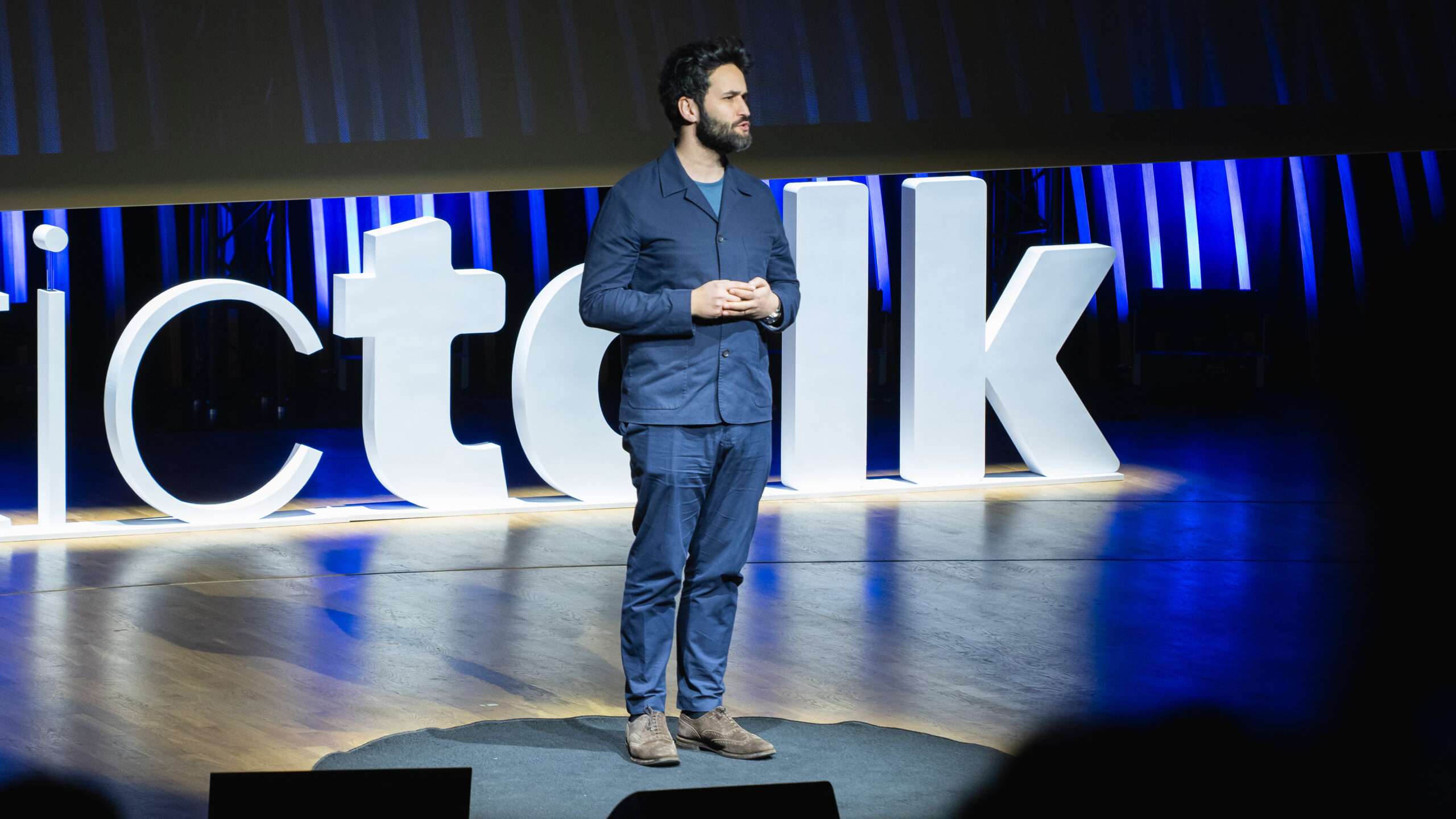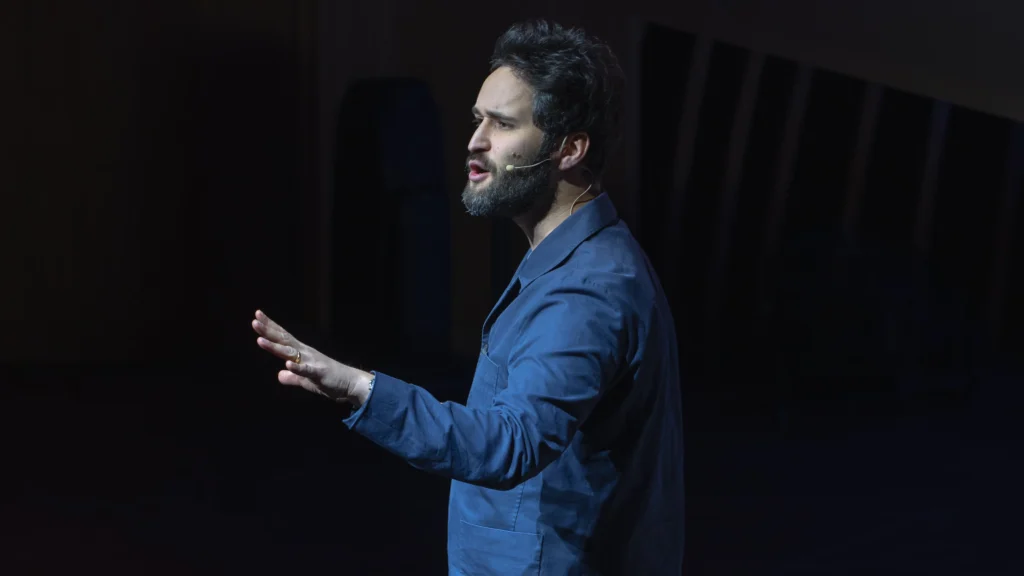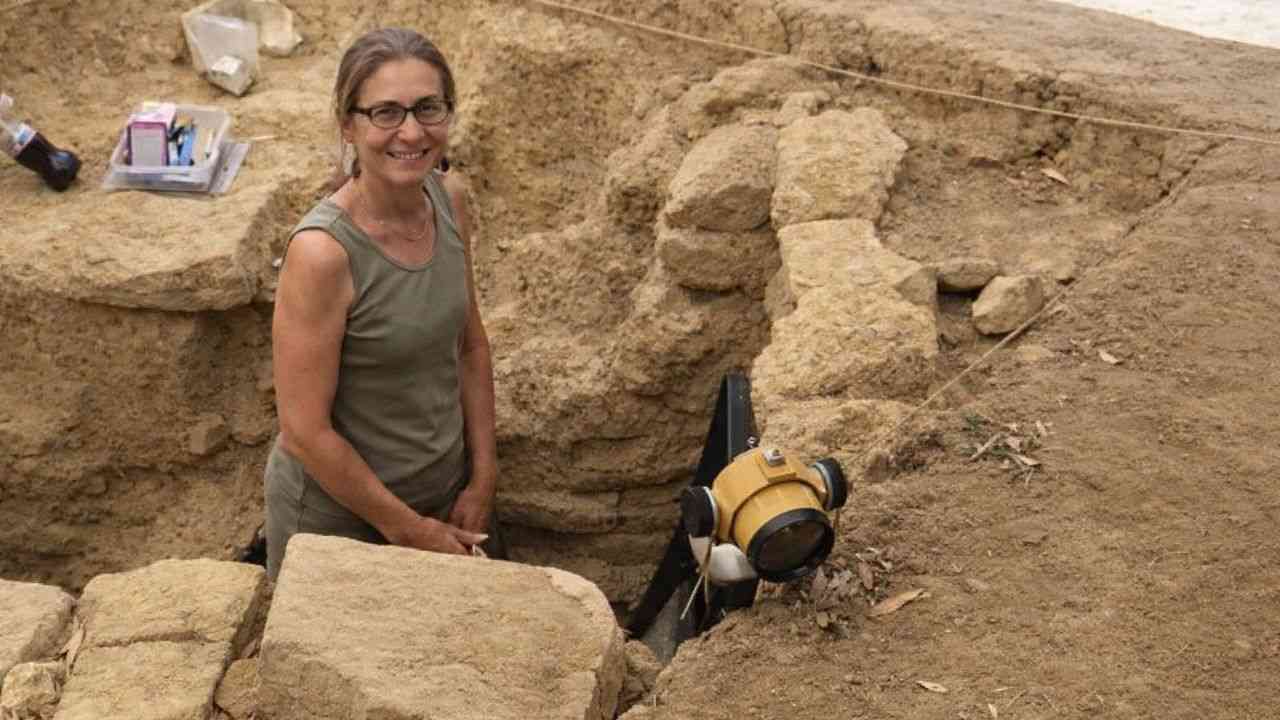Science
The Sun’s Ring of Fire and a Planetary Parade: A Captivating Celestial Show
13 February 2026

Prof. Daniel Susskind, in an exclusive interview points out a fact often overlooked in the media. There are at least two types of artificial intelligence (AI): strong and weak. We often fear that the world will be taken over by some global program that controls everything, like in the movie "The Matrix." Meanwhile, an expert worries that the labor market will be dominated by highly specialized applications that will perform their tasks much better than humans. How to prevent a global crisis? Can education be the answer to all the problems?
Renowned academic Dr. Daniel Susskind has given an exclusive interview to Holistic News. Susskind was the keynote speaker at the Holistic Talk conference which took place on 17 February 2024 in Bielsko-Biała.
Holistic Talk is based on Truth, Goodness and Humanism: ideas that are a source of passion and a prelude to change in the world. On the pages of Holistic News, we have published the speeches of the conference guests and comments on their theses.
Daniel Susskind is an acclaimed author and economist who seeks to outline a vision of what a world in which work is not an obligation but a privilege would look like. Susskind is a Research Professor in Economics at King’s College London and a Senior Research Associate at the Institute for Ethics in AI at Oxford University.
His academic and professional career has been linked to the study of the relationship between technological development and the evolution of work. He is co-author (with Richard Susskind) of the book The Future of the Professions on how technology will change specialist work. He is also the author of the bestselling A World Without Work, in which he makes predictions on the impact of further automation and the implementation of AI-based tools on future jobs. He has also appeared as a speaker at TED Talks.

John Beauchamp: I would like to thank Daniel Susskind for coming in the studio here in Bielsko Biała, we are at the Cavatina Hall for Holistic Talk. It’s a pleasure to have you here…
Daniel Susskind: Real pleasure to be here. Thank you very much for the invitation to be part of it.
First time in Poland?
It is my second time in Poland, but first time to this part of the country.
Where were you before?
One of my very good friends is Polish, and he had a birthday party in the east, in the countryside. It was great fun, we were in a sort of cabin, lots of friends in the middle of nowhere lots of snow, lots of walks, lovely.
Sounds like the ultimate getaway. Now we are here to talk a little bit about your book A World Without Work, and also about education in general. There is a phrase which you mentioned in your book, and this is that you talk about “more education.” Now do you think that the implementation of this idea of this slogan, this “more education,” is it the only constructive response which we could have as humanity to the threat of technological unemployment? Every day we hear stories of systems and machines that are taking on tasks and activities that, until recently, we thought only human beings alone could ever do, such as making medical diagnoses, driving cars, drafting legal contracts, designing buildings, composing music and writing news reports… What does all of this mean for the vast majority of us for whom our job is our main, if not our only source of income?
I think this is one of the great challenges of our time. And the reason I wrote the book, A World Without Work, was because I don’t think we’re taking seriously enough the threat of a world where there’s not enough work for people to do because of the technological disruptions that are taking place. Now, just to be clear, I, don’t think there’s going to be some sudden technological big bang after which everyone wakes up and finds themselves without work.
Work is going to remain for some time to come. What I worry about is a more gradual problem that as we move through the 21st century, more and more people are going to find themselves unable to do the sorts of work that has to be done, and you ask about education: I think In the medium run, so the next 10, 15 years, and I’ll be talking about this in my talk today, I think education is one of the best responses that we have to these challenges because the challenge isn’t going to be at least in the next 10 or 15 years, one where they just aren’t enough jobs. Full stop. There are going to be jobs.
The challenge is going to be how do we get people into those jobs? How do we provide people with the skills and capabilities to do the work that’s going to have to be done? So I think you know in the short-, medium-term, education remains are our best response, but for the reasons I think you’re hinting at I there are reasons to think that it’s going to be a less useful response to these challenges as time passes.
Listen whole conversation with prof. Daniel Susskind:
So to continue with this with this trope what, then, do you think should be taught (or not taught) in the face of these coming changes, as you say, in the short-, medium- and long-term? We have a technological revolution now, but I’m sure in the future, there’ll be even more revolutions, which we can’t even fathom at the moment…
That’s an important point. And I’ll talk about uncertainty a little today because, you know, one of the most certain things about the future is that it’s very uncertain.
When I think about education, I think of there being three dimensions to this. One is you’re saying is what we teach, what skills and what capabilities are we providing people with? And very broadly, I think there are two strategies here. Either we ought to be training people to compete with these systems and machines to do the sorts of things they cannot do, or we ought to be training people to build these systems and machines to be the kind of people who are capable of designing and operating them and putting them to productive use. What I don’t think we should be doing is training people to do the sorts of routine activities that these technologies are already very good at doing like menial tasks.
Let me give you an example, because I think the challenge is that if you look at what we do in practice, often we are training people to do routine stuff. So think about what the first five, even 10 years of being a lawyer looks like. Document review, document assembly, document retrieval: these are the precisely the kind of routine tasks that these technologies are already very good at doing and are just going to become better in the future. I think the what skills and what capabilities are really important, but there’s also other dimensions and I write about this in the book.
There’s also the how we teach and the when we teach and we’ve got to think about those dimensions, coming back to this idea of these first few years of a lawyer. So simple document retrieval analysis…
Surely, good lawyers have to go through that stage anyway, even if they might not do it, let’s say, later on in their careers. These are the kind of things which provide some sort of formation.
Yes. I think this is a really important point, which is what, how do you prepare people for life as, say, a lawyer? If those first few rungs on the ladder, those opportunities to cut your teeth are no longer available.
And there’s a few responses to this. I mean, one is… Just if you talk to junior lawyers, you know, what they often say is, well, look, yes, but I only needed to do these activities for five months. I didn’t need to do them for five years. It’s important not to conflate, to put it bluntly, this sort of productive work and what’s essentially exploitation.
You know, the business model of a lot of large professional firms relies upon charging out the time of relatively junior professionals at quite high rates to do relatively routine work. So this is a challenge, not just a training challenge as you’re suggesting…
But also a kind of financial challenge…?
It’s a challenge to the business models of many professional firms, yes. So what do you do about it? Well, one thing, and I write about this a little in A World Without Work, but quite a lot in the first book that I wrote, The Future of the Professions, you know, we have got to be thinking more creatively about the how we train, how we teach, you know, it’s striking that if you think about some of the most expert occupations in the labor market, you know, flying a rocket ship, for instance, you know, the first time you actually fly a rocket ship is the first time you fly a rocket ship, even though you spent years and years in some sort of simulated environments and simulated training, you can imagine something similar for lawyers.
You could provide junior lawyers with the opportunity in simulated learning environments to engage with the sorts of legal problems and the sorts of tasks and activities that only very senior lawyers would engage with, but they can engage with them in the start of their careers in these simulated environments.
And if you think about technologies like GPT and the ability to generate a courtroom scenario, for instance. Wouldn’t that be wonderful training for a junior lawyer, rather than spending all their time, you know, earning their stripes doing document review, document assembly, document retrieval, they can engage or be – in a simulated way – in some of the more challenging work that they might do and perhaps, you know, it’s not unreasonable to think that’s a better way to prepare people for that work than the sort of routine stuff.
It really does put emphasis on practical knowledge rather than, let’s say, theoretical knowledge. Obviously you have to have the theory in order to, to do the practice. But as you were saying, we should be kind of thrown into the deep end at a much earlier stage. Is that what you’re getting at?
Well, I think, I think there’s an opportunity to do that, certainly. And there’s an opportunity to do that if the challenge, as you say, is that some of the routine activities that junior professionals might’ve cut their teeth on in the past are no longer available.
You mention in your book the fact that it’s not just about what we teach, but, but how we teach it. So of course this is a key issue in, let’s say, any change in an education system. It’s not just the curriculum, but let’s say the approach to a given curriculum. Now, do you think that humanity has time to adapt our teaching methods before the next revolution comes along? I kind of get the feeling that especially with the advent of digital technologies, that we are simply way behind in terms of methodology. Do you think that we will have as humanity an opportunity to kind of catch up before the next kind of revolution comes along to, in order to change our teaching habits or educational habits in general?
I think it’s true, not just of the teaching profession, but of all the professions that they are fairly conservative and attached to traditional ways of working: doctors not only like solving medical problems, they like the stethoscopes and the white gowns. Lawyers not only like solving legal problems, but they like the oak paneling in the courtroom. Teachers not only like educating people, but they like the the traditional classroom set up and the whiteboard and the blackboard and so on.
I think there is a kind of conservatism, but that said I tend to be – and it’s just the sort of optimism that runs through a lot of my work – optimistic about humankind’s ability to both be extraordinarily creative and then also to, to be extraordinarily adaptive. Let me give you an example though of what I’m talking about. When I think about how, you know, if you were to step into a time machine and go back a hundred years and walk into a classroom back then, it would look remarkably similar to how classrooms do today, despite the existence of many technological alternatives.
And that can’t be right. So one example, one of the really interesting things that comes out from educational research is the extraordinary effectiveness of one-to-one tuition with a human being. So we know that an average student who receives one-to-one tuition with a human tutor will tend to outperform 98% of students in a traditional classroom setting. So it’s incredibly effective, but it’s also incredibly expensive. What’s so exciting about something like a personalized learning system, you know, software that tailors what is taught, how it’s taught the pace, the way and so on. So the particular needs and demands of strengths and weaknesses of the student. They’re replicating the kind of interaction that you might have with a human tutor, but doing it at a far lower cost. And that’s the sort of thing that interests and excites me.
So do you think that schools as institutions and you know, brick and mortar buildings, do you think they will continue to exist? Because I think what I, what I kind of get with what where you’re going is that education has an opportunity just to go all online or all into a, let’s say a kind of a more on a one-to-one kind of system.
My sort of theory of change is that kind of big bang technological revolutions tend not to work out particularly well. My own view is that the way to change it, particularly if you’re a well-established professional institution, is to try lots of things: start small, experiment, drop quickly what doesn’t work. Accelerate to adopt what does work. So I’m not in favor of demolishing the traditional institutions, the professions, but I am in favor of experimenting with very different types of working and running with what, what appears to appears to work.
And something like personalized learning just seems to me that there’s a sort of a very intuitive theoretical case for it. It’s now up to us now to really try it out and practice to see whether it actually works.
I’m wearing a tie here of my old school in Oxford, and I remember when computers first started appearing in the classrooms and many teachers were actively revolting against the advent of PCs and they were quite happy to stick to their blackboards and overhead projectors. So, yeah. It’s not really just about the generations who are learning, but it’s the generations who are teaching now, how much emphasis do you think we as society or as humanity should be putting on the people with whom we entrust the education of our children in terms of adoption of new technologies or certainly back in the early 90s or mid-90s, you know, there was a lot of skepticism, partly because the generation that taught me were all baby boomers, so they just simply weren’t used to such technology. What’s your take on that?
It’s an interesting case. So I think the world you’re describing not only characterized your own kind of educational background, but also, I imagine many people until relatively recently would have said something similar.
What’s interesting though, and I’ve been working on the impact of technology and artificial intelligence on the professions on work for 15 years. Back then, if I spoke to an audience of teachers, the response to the sorts of ideas we’re describing would have been very conservative, hostile, skeptical, confrontational, defensive…
I think in the last five years in particular, that’s changed a lot. The issue has gone from being one of “that’s nonsense” to “Okay. We understand it. What do we do about it? How do we respond?”. And I think to some extent you can see that in what happened with GPT, Chat GPT in particular, in the last 10 months, which is that the big challenge for teachers, for educators, for students is to try and strike the balance between when should you be allowed to use these technologies in an educational setting? Should you be allowed to use them like you use a calculator to help you or should we just be, you know, putting them to one side?
What was interesting is that some schools, some educational institutions said, you know, “ban these things, we’re not going anywhere near them.” And the general response to that was the right one, which is that, well, that’s completely ridiculous. That’s the missing extraordinary opportunity.
That seems to me to signal a sort of a cultural shift towards recognizing the potential of these technologies. Settling on a kind of puzzlement about what we ought to be doing with them.
Are you closer to the concept of Eliezer Yudkowsky or James Lovelock? Do you want a total lockdown on AI, or are you an advocate of a kind of more symbiotic existence?
I mean, there’s a distinction and you’ll be familiar with it, that computer scientists make between Artificial Narrow Intelligence (ANI), which are technologies, AIs, which are very, very good, but only at very specific tasks, such as making a medical diagnosis or drafting a legal contract.
Then there is what computer scientists and the sort of people you’re describing are really interested in which is Artificial General Intelligence (AGI) which are in technologies that can’t just do one or two tasks, but they can do all tasks, and they can do them better than we can. I suppose one of the arguments that I make in my book, and in my work more generally, is that what worries me in thinking about the future is actually less sort of one giant AGI, Artificial General Intelligence, and more a sort of army of smaller ANIs.
You know, if you’re a lawyer, it seems to me that the challenge to your work in the short- to medium-term, is not an Artificial General Intelligence displacing you from your job at your desk in your entirety, it’s the gradual encroachment of lots of individually, extraordinarily capable technologies.
And so that’s where I am on this, that I suppose I’m more in thinking about the impact on work, particularly in the kind of short- and medium-term. What interests and troubles me is the sort of lots of extraordinarily capable, but only narrowly capable technologies and AGI is interesting, but to some extent a distraction from that sort of narrow story.
So, here we have the Holistic Talk today, and there’s also an institution or a center called the Holistic Think Tank. So, like many research centers and NGOs it works in an interdisciplinary manner and teaching these interdisciplinary subjects, you know, involves the development of soft skills, communication and a general understanding of the world. Now, do you think that there’s anything researchers necessarily consider in the context of widespread automation?
Let me pick up on one thing that you said there, which is the importance of things like communication and interpersonal skills, empathy, a personal touch and so on, because it’s a set of kind of human capacities that comes up a lot in conversations about, particularly about the future of white collar work, professional work: lawyers, doctors, teachers and accountants, etc…
And it’s some of the activities that are hardest to automate, but not necessarily impossible to automate. And that’s a kind of bigger question, a bigger conversation. It’s really interesting, actually looking at the progress that’s being made in developing systems and machines that can perform tasks that might require those sorts of faculties from us.
But if you’re asking the question: “What sorts of skills and capabilities should we be providing people with?” then to go right back to what I was saying before, the distinction between compete and build. The sort of things that we can still compete with these technologies at are precisely the sorts of skills you’re describing.

And in trying to make ourselves better in so many aspects, you may think about the Nietzschean Übermensch, right? It’s not necessarily a trans-humanoid being, but maybe a 21st century human who, in order to match the machine, has to expand his cognitive abilities and skills. Now, do you think our brain power is even able to match the computing power of GPT?
So I think there are – in spite of all the technological advances that are taking place – some really extraordinary things that are taking place at the moment.
Clearly there are large areas of human activity that even the most capable, even the most powerful machines still can’t do. You know, we were just talking about interpersonal communication skills, but also to some extent tasks that require faculties like creativity and judgment and empathy from us.
And so, you know, although these technologies are already extraordinarily, extraordinarily powerful. And yes, it’s true. This is the worst they’re ever going to be. They’re only going to get better. There are, nevertheless, lots of things that we do that these technologies cannot. And so, one of the things I set out to do in my work when thinking about this sort of set of capabilities, which I call competing with these technologies, I set out to try and identify what those might be.
I think the set of things that we can compete in is getting smaller, it’s getting narrower. For instance, one of the things that people, over the last 5, 10 years, I can’t tell you how often they would say to me, “look, Daniel, machines will never be creative, will never come up with something original, it will never take us by surprise.”
And what is so interesting and provocative about GPT for instance, is that what it’s so very good at coming up with stuff, whether it’s text, whether it’s images, whether it’s a video, whether it’s sound, whatever it might be.
Is there anything else which you would like to add to our conversation? Just to wrap up, looking in the, in the medium-term, where do you think we will be or what do you think the job market might look like?
I think I’d go right back to the start to the observation I made at the beginning, which is that in my view, the challenge for now and in the medium-term is not a world of mass unemployment.
That’s not the challenge that we face. The challenge is one of what I call mass redeployment, which is a really quite significant change in the sorts of jobs that will have to be done. And as a result, the kind of skills and capabilities that are going to be required to do that work. The challenge is how do we provide people with the skills and capabilities to do that work?
And it might certainly sound less a cinematic or a less dramatic threat than a world where robots take everyone’s jobs, that’s true. But I do think for those who are affected, particularly those who might struggle to learn the skills and capabilities, it’s no less consequential, so I think it is an urgent challenge.
When you look further into the 21st century, though, it does seem plausible to me that the challenge might change. From being one where there are enough jobs and how do we get people to do them to one where they just aren’t enough jobs full stop very different challenge very different set of responses and probably needs a longer conversation…
It certainly does, but time unfortunately has run out. Dr Daniel Susskind many thanks for speaking to me today for the Holistic Podcast.
Thank you so much real pleasure to be part of it.
More about Holistic Talk:
Science
13 February 2026

Science
13 February 2026

Science
12 February 2026

Zmień tryb na ciemny